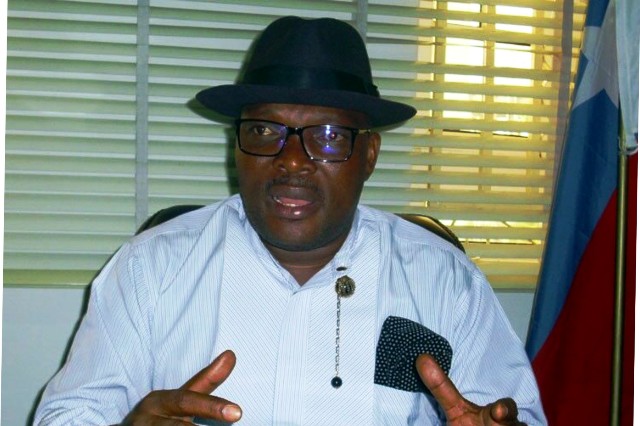Niger Delta
Account For Loan Obtained, Bayelsa Govt Tells Sylva

The Bayelsa State Commissioner for Information, Mr. Daniel Iworiso-Markson, has said that the state was the least indebted among the states of the South South geopolitical Zone.
He said that the state’s debt profile as released by the Debt Management Office was moderate because of the frugality and judicious management of state resources on the part of the state Governor, the Honorable Henry Seriake Dickson.
The Commissioner said that the Government inherited a bond of N120 billion from the Chief Timipre Sylva’s administration at inception in 2012 and would complete repayment in June.
The commissioner noted that the Governor should be commended for keeping the debt status of the state low in spite of the various big ticket projects in the critical sectors that were successfully executed in the state.
He recalled that the State Government recently completed the Bayelsa International Cargo/Passenger Airport at a cost of N65 billion aside from the multi billion projects in Education, Health and Agriculture sectors.
The Commissioner said that Sylva and members of the APC who have been making false claim about the debt profile of the state had a responsibility to tell Bayelsans what they did with the N120 billion loan burden they foisted on the state.
He lamented that the money was frittered away as no visible project was tied to it.
He said, “It is worthy of note that Bayelsa still remains the least indebted state in the whole of the South South. This is in spite of the massive project execution that has taken place since 2012 when the Restoration Government took over.
“The debt status of the state is modest because of the prudent and judicious management of state resources by the Governor in spite of the several completed development projects in the state.
“By this month, we will finish paying Chief Timipre Sylva’s bonds which is about N120 billion which of course, he didn’t use for anything.”
“When such people make claims, they should be reminded that they have a duty to tell Bayelsans what they did with N120 billion they foisted on the state.
Niger Delta
Stakeholders In Delta Seek Stronger GBV Action, Women’s Leadership

Niger Delta
C’River Suspends Taskforce Activities Over Drivers’ Protest

Niger Delta
A’Ibom Assembly Urges More Private Investments In Agriculture

-

 News5 days ago
News5 days agoDisu Takes Over As New IGP …Declares Total War On Corruption, Impunity
-
Politics2 days ago
2027: NIGERIANS FAULT INEC ON DIGITAL MEMBERSHIP REGISTER DIRECTIVE
-

 Environment2 days ago
Environment2 days agoLAWMA Director Says Sweeping Reforms Have Improved Waste Collection
-
Politics2 days ago
LP Crisis: Ex-NWC Member Dumps Dumps Abure Faction
-

 Sports2 days ago
Sports2 days agoAbia Not Sure To Secure continental Ticket
-

 Politics2 days ago
Politics2 days agoUmahi Dismisses Allegations On Social Media, Insists On Projects Delivery
-

 Transport2 days ago
Transport2 days agoFAAN Announces Pick-Up Points for Go-Cashless Cards
-
Sports2 days ago
La Liga: Yamal Records First Career Hat-trick

